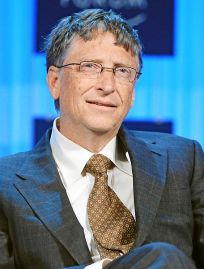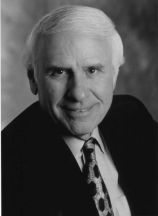LEADERS LEAVE LEGACIES
January 13, 2014 8 Comments
“The only thing you take with you when you are gone is what you leave behind.”
John Allston (1666-1719).
I find that one of the things that you think about as you get older is whether you will leave anything worthwhile behind after you are gone, particularly when it comes to elements of one’s life (other than children and grandchildren) such as whether after 40+ years of working you have left some sort of legacy in the businesses for which you worked. I accept that it is a bit arrogant to hope that you were able to make a significant enough contribution to have made a real difference to other people’s work lives. I also accept that I am no Bill Gates or Steve Jobs, to pick on two obvious examples, but there is a part of me that would like to feel that I had made a difference to at least some small extent.
About 10 years ago, while visiting New York on vacation and after I had recently taken up the role of Global Head of HR at SAP, I was asked whether I would be prepared to do a press interview about my new role. It seemed that my having moved from the post of a Regional CEO at SAP to an HR role was considered to be so unusual as to be mildly newsworthy.
Patrick Kiger, the journalist who interviewed me, was charming and very relaxed and we chatted about topics as diverse as what I believed about HR, the role that I felt I needed to play, my priorities, my background and a 100 other different subjects like the meaning of life, and even the accidental creation by the KGB of an anti-hangover pill.
The interview subsequently appeared in Workforce on July 30, 2004 and despite a few small typos (such as my finding 100 rather than 1000 different HR programmes underway which we cut to 30, rather than to 300 as was stated in the article) it was fairly accurate.
Just a few days ago, I had a close friend send me the article after she had accidently stumbled upon it whilst trying to find something that I had written in one of my blog posts. I had completely forgotten about this particular interview so it was interesting to reread it, to revisit my thoughts of a decade ago, and to consider whether I had actually managed to achieve the things that I had discussed in the interview. It turned out to be a bit embarrassing to do so.
I have long believed that one of the key measures of successful leadership is whether there is a sustainable legacy left in place after departure. I have met many managers who appeared to be good at holding things together, and who were capable of running a successful operation as long as they were in place, but who left very few long term sustainable initiatives behind them. I consider that there are important measures for true business leadership success beyond just financial health, such as did they build talent for the organisation, did they grow future leaders, did they build a culture based on strong values that could live on after they were gone and did they leave customers and partners who were loyal.
In my own assessment, I felt that I had mostly achieved this in both my roles as Regional CEO for SAP Asia Pacific and later for SAP EMEA, but having revisited this interview, I now wonder whether I had actually managed to do so, in my final full time role before retirement, as SAP Global Head of HR.
In my business management roles, I had always felt that I had left behind a strong management team and that my chosen successor had been ready, and champing at the bit, to take over from me. I had felt that the culture that had been created during my stewardship was one that enabled people to thrive and grow, that engendered passion and commitment from my people, and was one that encouraged calculated experimentation and risk-taking without fear of failure.
Now when I look at that interview in 2004 and at the goals that I had set for myself and for the HR organisation those 10 years ago, unfortunately I cannot say the same things.
When I was asked to step out of business management into the HR role, I was initially very hesitant to do so, but eventually acquiesced because I seriously and honestly believed that I could make a measurable difference.
As an existing board member, I believed that I would be able to position HR into a more strategic role and that we could ensure that people, as well as technology, would be at the forefront of business strategy. I believed that I could build an HR management team that would be seen as adding value to the business and that would be seen as being a “player” in helping to build business success (see “HR … Polite to Police to Partner to Player” posted August 26, 2010).
Former American football head coach Bill Parcells set the challenge into words when he said “When asked what I want my legacy to be, I am content at this point to say that it is those who will follow me”.
The reality is that since my retirement from SAP in 2006 no subsequent head of HR has lasted more than 12 months, the role of global HR Head has been vacant for longer than it has been filled, the status of HR has remained one of low strategic value, and HR is still not perceived as being of significant value-add to the business. My planned successor whom I worked with during my 3 year tenure and who, I still believe today, was one of the few true HR professionals capable of doing this job at SAP, was never given the role and subsequently left the company.
If the measurement is as defined by American entrepreneur and author Jim Rohn (1930-2009) when he said “All good men and women must take responsibility to create legacies that will take those that follow to a level we could only imagine”, then I can only conclude that during my tenure as a global head of HR I did not really achieve a great deal (see “HR … Why is no-one listening” posted July 30, 2012).
Interesting development … A week after I actually wrote this piece for posting on January 13th, SAP announced on January 9th that my original planned successor, after a 3 year absence, would re-join the company as Global Head of HR (http://finance.yahoo.com/news/stefan-ries-joins-sap-global-120000529.html) … strange synchronicity !!




You made a difference to me Les.
Thanks Tim … you may be my main legacy 🙂 Les
Hello Les, you are still remembered at SAP on many topics….reference is always about ‘it worked well when Les was here’. Personally for me, having worked closely with you those 2 years as your assistant, changed me as a HR professional….the clarity I continue to have on being strategic business partner and player. Your legacy is leaving an imprint in our minds on what and how we should run HR with and what for and that is still remembered….and delightfully, I am certain our mojo will be back…I can’t wait to welcome back a old friend I respect immensely….someone you groomed….what a start to the year 🙂
Thanks Bhuvan. Sadly as you said ” … It worked well when Les was here …”. The test I feel is did it work well after he was gone ?
I am at least pleased that Stefan Ries will come back to SAP to head up HR … I hope they give him the freedom and support to do great things. Les
The quality of your people, their development, environment and attitude is undoubtedly the most important factor in any business.
A quick illustration, I was in a position where my small subsidiary of a famous multi-national became one of only two suppliers of POS to McDonalds in my patch (APAC).
The opposition product and the one we represented were built strictly to McDonalds own specification.
With most things being equal, the competing products were as good as identical.
The price we sold at was controlled by McDonalds as was my company’s margin. Yet we thrived whilst our opposition just “got by”. Fact is, we thrashed them in the market
The reason? They employed 3 times the per capita support workforce to support the installations consequently we enjoyed a much healthier bottom line.
People are everything – and it was a joy to be able to lead this team.
Tim, i agree 100% that “people are everything”. Les
Les
to somewhat echo Bhuvan, there are many days that I am reminded of something you said or that I learned from you which helps to guide me in the decisions I make, even if it is just taking a few minutes to reflect and have the courage to try something different. I am not sure if the legacy someone leaves has to be felt at the organizational level as in the two examples you gave (Gates and Jobs) or if an almost more important legacy is left in the people that worked wiht you.
Pam, thank you for the kind words, but I remember you as someone who was more than capable of trying new things and setting your own course, and I am comforted in the fact that I touched some individual people. My regret is that my time in HR seemed akin to putting one’s finger into a bowl of porridge. Removal of the finger leaves no visible indication that one was ever there. Hopefully Stefan will have more success. Btw, is “LEAP” still alive ? Les